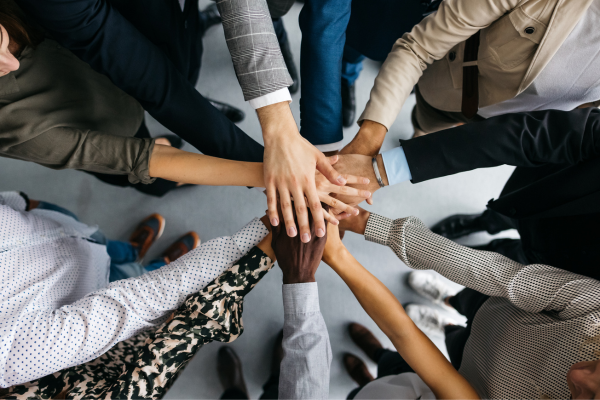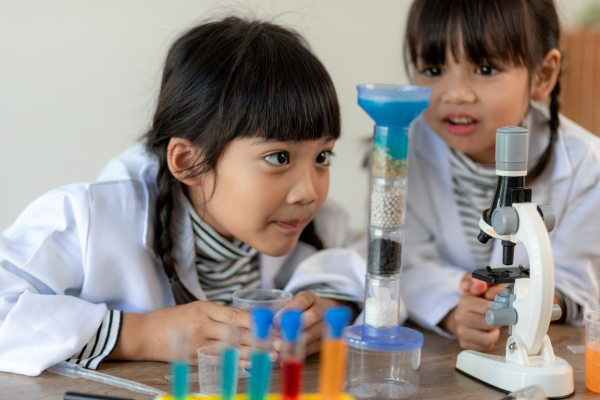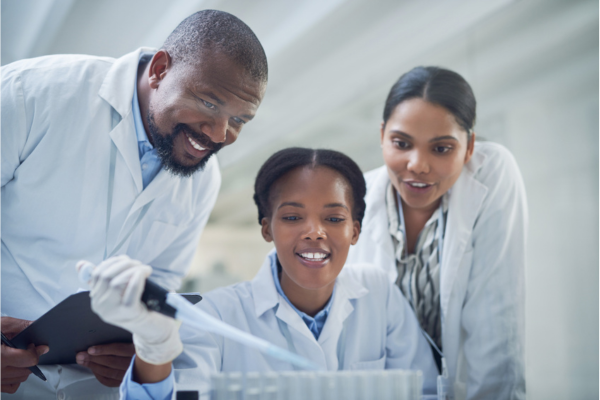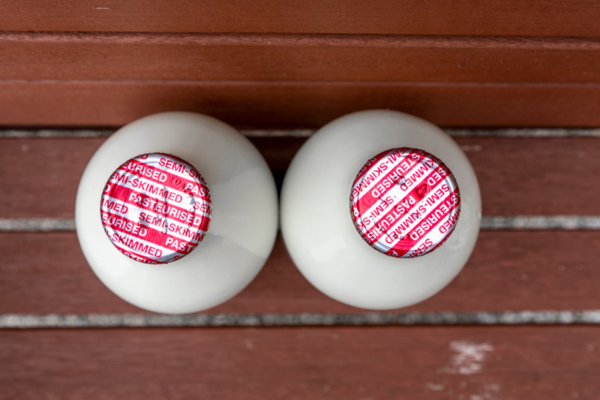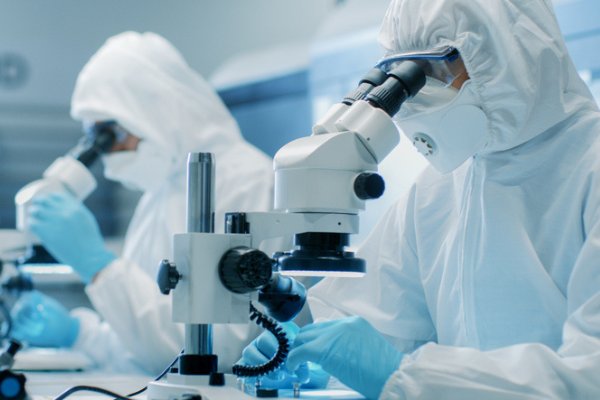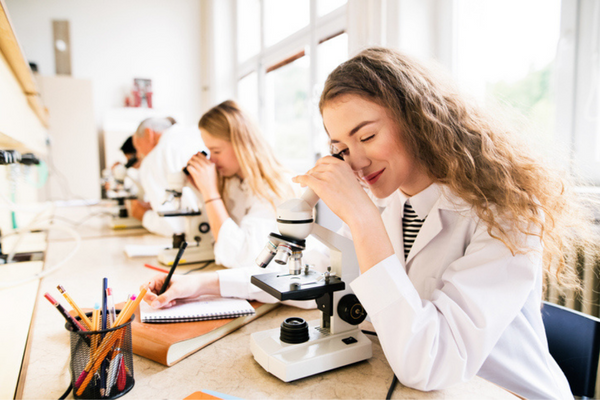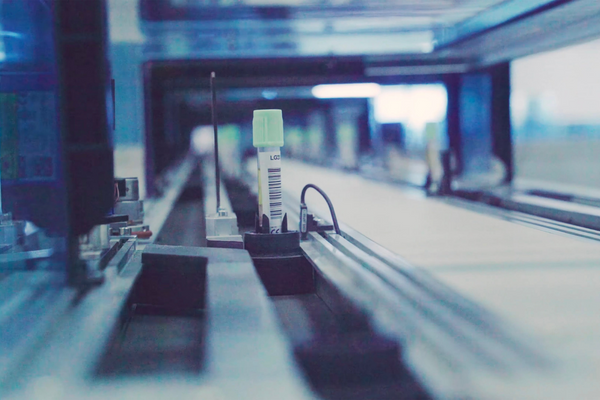
How has the instrumentation business evolved over the last 20 years or so?
The trend over the last 20 years has been to move from manual to automatic analyzers. The use of automatic analyzers enables the performance of many tests with minimum involvement of personnel. The use of integrated computer hardware and software into analyzers provides automatic process control and data processing. Additional advantages include reduction of workload, less time per sample analysis, more tests done in less time, use of minute amount of sample, decreased chances of human errors, and high accuracy and reproducibility.
You have written that your passion for chemistry began in your sophomore year of college. What happened that year?
I was not exposed to chemistry until my sophomore year. Until that time, I was focused on biology in high school and college but was still trying to find my way. I registered for General Chemistry with Professor Gerard Dobson who turned me on to an exciting new world. It was like a key turned in the lock and opened the door to a complete picture of the science I was pursuing. I was hooked. Ultimately, I combined the two and got my degree in biochemistry.
What non-technical skills are most essential for early career industry chemists to learn for long-term career success?
Written and oral skills are critical for success at any stage of a career but especially at the beginning. You must be able and willing to express your ideas clearly to a wide audience.
Teamwork/collaboration is also key - working well with others, being curious about what everyone on the team is working on to see the big picture, learning new things and offering insights and assistance. Finally, problem solving and troubleshooting skills will serve chemists well throughout their career.
After spending a great deal of time serving in many roles with an ACS division and an ACS local section, what did you learn about the primary challenges each is confronting? Thoughts on how to meet the challenges?
The primary challenge for both local sections and divisions is to attract and maintain a pipeline of active volunteers. I have found that the most successful way to recruit is one-on-one. Most potential volunteers need insight into how they can contribute, whether it be for a small, time-based project, committee work, or as an officer. Once they have an idea of what they can do to help, as well as the benefits of service, most are willing to volunteer. Often, they stay involved with ACS for years!
Driving two hours each day to attend college, raising two girls by yourself for a time — to whom or to what do you owe your strong sense of perseverance?
My mother has always been my role model and inspiration. She taught me that you can do anything you put your mind to. In many ways, our lives have taken the same path. We were both single mothers, raising our children while successfully working our way through college and up the career ladder, as well as volunteering our time to Girl Scouts, professional societies and environmental causes.
What lasting impacts do you expect the pandemic will have on your job at PAC?
This has certainly been the most interesting time of my 20-year career at PAC. PAC is a manufacturing company that pivoted quickly to get all non-essential workers out of the manufacturing sites to increase the safety of our production staff. We have developed productive and effective methods for collaborating, marketing and selling our products, and serving our customers that will fundamentally change how we do business in the future.
Personally, I expect my job to be done remotely for the foreseeable future, with little to no travel. I believe that we will see this remote model embraced by many companies and decrease the need for office space and travel. The pandemic (and the downturn in the oil industry) hit shortly after I joined the PAC leadership team. We worked together to chart the best course of action for the company and its employees, with minimal disruption to the business and the employees’ livelihoods. This has been a tremendous opportunity to learn firsthand how good leaders manage organizations through adversity.
You worked at a startup business focused on bio-desulfurization of fuels. The business ultimately failed. What did you learn from that experience that helped you later in your career?
As one of the first 20 employees, I was charged with setting up the analytical lab, which afforded many firsts in my career, including evaluating, purchasing, and mastering various types of automated analytical equipment; interviewing, hiring, and managing employees; and managing projects.
However, the greatest revelation was that I am very good at organizing people, projects and events. I organized everything from research projects and grants, to company events, softball and volleyball teams, and camping and ski trips. Although the company failed, I have maintained communication with more than 50 former coworkers and count many as close friends. We are scattered across the globe, but stay in touch via phone, email and social media.
I maintain a Facebook group to facilitate communication and gatherings. This networking has served me well both personally and professionally, and helped me land the job at PAC where I have been for more than 20 years.
How will scientific meetings need to evolve to remain relevant in the post COVID-19 era?
I have long felt that scientific meetings need to embrace a hybrid meeting model – combined face-to-face and virtual participation – to provide more tailored programs that better address the changing and varied reasons that prevent people from attending in person.
This idea is being propelled forward in this pandemic age. A hybrid meeting could allow for the increased participation by many international and industrial members. New ways of delivering material will need to be developed, and technology will need to be seamless to capture and maintain interest.
What’s the most important thing you learned from your time on the ACS Women Chemists Committee?
The Women Chemists Committee (WCC) was my second try at committee work. In my first foray, I was not able to get involved and make a difference. When I was tapped to join the WCC, I was quickly brought into the fold and tapped immediately to organize a symposium, which led to additional roles as web diva and in social media marketing.
The important lesson I learned is that you need to reach out and get people involved and afford them opportunities to stay active or they will not feel useful and walk away. This has served me well in recruiting new volunteers for local section and divisional activities and keep them advancing into new roles in the organizations.
On which one of the following would you like to see undergraduate chemistry programs focus more attention: Sustainability? Safety? Business? Communicating one’s science? Something else?
I have not been exposed to undergraduate chemistry programs for more than 30 years. However, I would have benefited from a course or program that went beyond the classroom to bring in current issues and challenges for presentation, discussion, research and problem solving. I always wanted to know how what I was learning could be applied.
On every business trip, you have said you get to do at least one "touristy” activity. Which of those touristy activities provided your fondest memories?
I have had the fortune to travel extensively in my career and have visited most corners of the world. It is extremely difficult to pick out one experience. However, the fondest memories may well have been from my first business trip out of Texas to Anchorage, Alaska when working for Arco Oil & Gas.
This was my first time to see mountains and I was awestruck. We had two days off prior to our week of meetings to get used to the time change. My colleagues went on a fishing trip and left me the rental car. I took a trip up the Seward Highway and saw mountain goats, eagles, glaciers, mountains and a midnight sunset/sunrise. It was amazing, and all I could talk about when we all got back together again. The next day I had to do it all over again but this time as the tour guide for my colleagues! This set me on a path to becoming the lead organizer for most all future trips and sightseeing adventures.
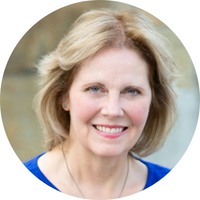
Lisa Houston is an experienced analytical and petroleum chemistry professional with over 30 years of increasing responsibility in business management, directing scientific personnel, product management, and project management.
She is Vice President at PAC, LP, an analytical instrumentation company, where she is responsible for the financial success of the Process Analytics segment. She received her bachelor’s degree in biochemistry from the University of North Texas in 1986.
Lisa has been an active American Chemical Society volunteer at all levels including Local Section, Division, Regional Meeting and National since becoming a member in 1990. A full resume and more about can be found on her website or her LinkedIn page.
Lisa was born and raised in Dallas but has been in Houston for nearly 30 years. She is married, has two grown daughters and five grandchildren. She enjoys traveling, hiking, and geocaching. Her favorite chemistry is done in the kitchen and the bar.
The opinions expressed in this article are the author's own and do not necessarily reflect the view of their employer or the American Chemical Society.
Copyright 2020 American Chemical Society (All Rights Reserved)

